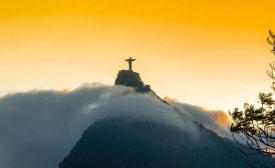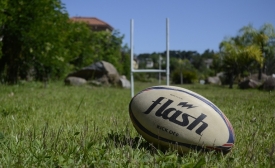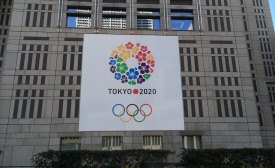2016 Rio Olympics

The hosts of the "Explaining Brazil" podcast talk with Daniel Buarque on the country's diminishing influence in the international sphere.

The country's first Olympic medal was a victory for the nation, both at home and abroad.
As Heather Dichter pointed out in her 2014 H-Diplo essay, a conundrum of sport diplomacy, perhaps its signal paradox, is the extent to which nations have used sport as a proving ground on the world stage. [...] Current American and global politics and their illumination on the playing field demonstrate the extent to which actors within and sometimes without a country deepen understanding of how politics and sport work in the international arena.
The theme of the art exhibition is Art Makes the Olympics Even More Beautiful and is a way of rounding off the games and celebrating sportsmanship and cultural reunion through art. It also makes up a part of the larger Year of China-Latin America-Caribbean Exchange which is an initiative that was born after a meeting with the Chinese president Xi Jinping and the leaders of Latin America and the Caribbean in July 2014.
United World talks to Indonesia’s Minister of Youth and Sports Imam Nahrawi to discuss the country’s success at the 2016 Rio Olympics, as well as the importance of Indonesia’s youth-demographic bonus. [...] In principle, sport is a tool of unifying a nation, sport is unity, it also means diversity, and sport is a way to eliminate all differences.
The European Union has launched the ‘2016-2020 Human Rights and Democracy Country Strategy’ for Papua New Guinea. [...] The priority areas are to promote a Human Rights culture in PNG society; support the ratification and implementation of Human Rights international conventions and instruments; and strengthen good governance, democracy and rule of law.

Tokyo's Governor pledges reform and transparency for the next summer Olympics.







